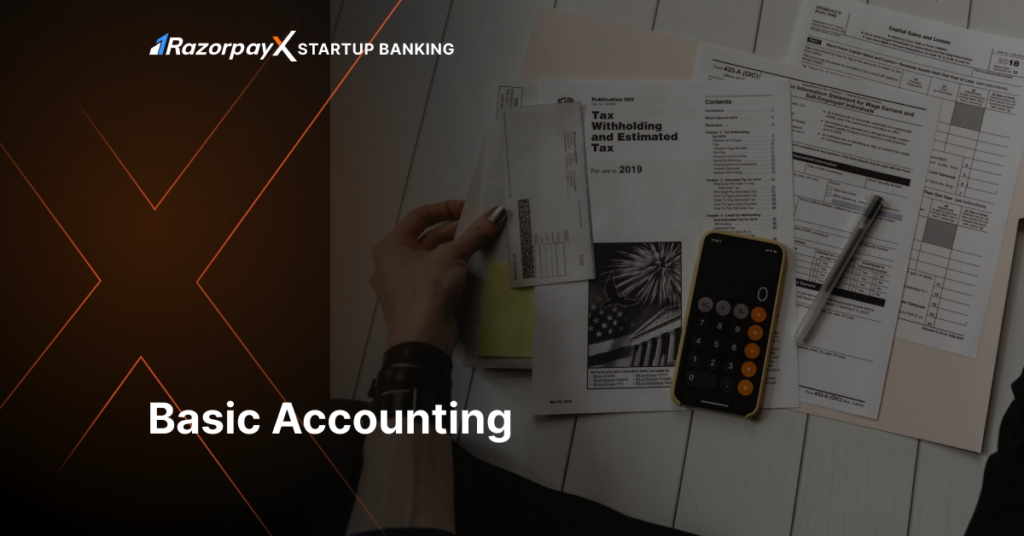Any business – whether it is traditional blue-chip ones or small-scale start-ups – must practise adequate record-keeping in order to ensure a seamless and transparent transactional protocol is followed. Therefore, basic accounting becomes exponential in maintaining the financial discipline of an organisation.
Table of Contents
What is Accounting?
In simple terms, basic accounting refers to the financial bookkeeping done by any entity in order to have a detailed record of all these fiscal undertakings. Therefore, a corporation must assess, measure, and further communicate all of these data points in order to keep a tab on its economic health.
So, an accountant working for a company will remain responsible for tracking the inflows and outflows of cash, generated revenue in a stipulated time period, or the balance between profit and loss records. Basic accounting practices are also crucial for judicial means, as it documents that an organisation is operating above the legal threshold.
Fundamental Notions of Account Keeping
Some of the foundational aspects of account keeping have been discussed below:
-
Assets
Asset refers to any product of value that is owned by a corporation. These products can be either purchased or acquired by the owners and are capable of furthering the fiscal prospect of an organisation.
For instance, the equipment used for manufacturing purposes, the inventory maintained by the corporation, or the liquidity available to it can all be considered assets. Notably, certain assets can be used as collateral – which a company can utilise as a security measure when borrowing funds.
-
Liabilities
Liabilities refer to the legal obligations and debts procured by a company. These debts are undertaken as such a company fundraises from third-party financial creditors for liquidity boost in order to keep its business functions operational.
Notably, liabilities are a common staple in the usual business cycle of any organisation. However, one must keep a proper balance between revenue and liability to avoid the risk of falling into a debt trap.
-
Equity
A company is legally obligated to return a specific lump sum to its shareholders once all the assets are liquidated and the debts are adequately settled. This amount is referred to as equity. The formula used to calculate this sum is as follows:
Equity = Assets of an organisation – Liabilities of the organisation
Some other crucial notions of basic accounting include:
- Expense
- Revenue
- Purchase
- Sale
- Receipt
- Balance Sheet
- Cash Flow Statement etc.
Components of Basic Accounting
There are two primary components of basic accounting, which are discussed below:
-
Transactions
Such documentation includes records of products that a company purchases for manufacturing goods or providing a service – such as tools or raw materials. Similarly, the paperwork will also show the data regarding sales made to customers or business buyers. Accordingly, proper receipts for such endeavours also have to be written down.
For instance, with the help of RazorpayX Vendor Payment, paying off invoices in a tax-compliant manner while maintaining adequate bookkeeping measures is possible with minimal turn-around time.
-
Record Keeping
This aspect of accounting takes into consideration maintaining a ledger of matters such as:
- Utility bills paid
- Wages paid to employees
- Accounts receivables
- Consumed assets, etc.
Central Concepts of Accounting
There are three quintessential concepts that a business must be aware of regarding its basic accounting practices:
-
Going Concern Concept
Under this practice, it is assumed that a business will continue to be optimally functioning in the foreseeable future. Accordingly, the upcoming proceedings are planned with the notion that the current assets available to the entity will be usable for future obligations down the line.
-
Accruals Concept
A business may recognise a profit or loss without the necessity of cash value exchange. Therefore, any record kept of such revenue generation or losses faced for basic accounting measures is done on the basis of the accruals concept. Notably, such records especially come in handy when a company is undergoing auditing.
-
Economic Entity Concept
As per this notion, the expenditures of a business have to be set apart from the ones of its owners. Intermingling personal and commercial expenses can lead to legal issues for a company during the audit period.
How Can RazorpayX Help Businesses In Basic Accounting?
RazorpayX, has completely reshaped the start-up sector in India. The platform also has the potential to aid the basic accounting needs of businesses that bring in foreign direct investments.
To elaborate, forex funding by RazorpayX allows your business to acquire funding from foreign investors without the usual hassles of red tape. Using the facility, you can remain compliant with the rules and regulations while transferring funds. You can also opt for thorough guidance from market experts to make more informed decisions in this regard. This way, your organisation will be able to maintain adequate accounting records so that there are no unwarranted obstacles during the audit period.
Frequently Asked Questions
Which documents are crucial for a business to maintain proper basic accounting practices?
Some of the documents a business must keep a track of to ensure a transparent bookkeeping practice includes,
Invoices
Payment vouchers
Tax payment slips
Labour documents
Contracts, etc.
What is the time of statutory audits in India?
In this country, statutory annual audits are done as per the financial year.
Does RazorpayX Vendor Payment help a business in its basic accounting endeavours?
With Vendor Payment, RazorpayX allows you to limit the time spent for accounting purposes - leading to improved resource allocation capabilities. For instance, with this facility, you can enable your Chartered Accountant to get a hold of the necessary invoices and challans in a matter of minutes.
